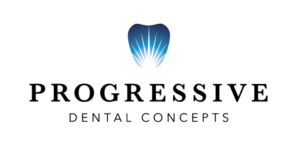Why Mentorship Matters for Young Dentists in DSOs
Starting a dental career can feel overwhelming. Newly graduated dentists often face steep learning curves as they balance patient care, practice responsibilities, and continuing education. While classroom and clinical training provide a strong foundation, mentorship plays a crucial role in bridging the gap between theory and real-world practice. Dental Support Organizations (DSOs) offer structured mentorship opportunities that give young dentists the guidance, support, and confidence they need to succeed.
Learning Beyond Dental School
 Dental school teaches the fundamentals of diagnosis, treatment, and patient communication. However, new dentists quickly discover that real-world practice brings unique challenges. Mentorship provides practical advice on everything from complex cases to time management. Experienced dentists guide younger colleagues through treatment planning, clinical techniques, and patient relationships. This support accelerates professional growth while minimizing costly mistakes.
Dental school teaches the fundamentals of diagnosis, treatment, and patient communication. However, new dentists quickly discover that real-world practice brings unique challenges. Mentorship provides practical advice on everything from complex cases to time management. Experienced dentists guide younger colleagues through treatment planning, clinical techniques, and patient relationships. This support accelerates professional growth while minimizing costly mistakes.
Developing Confidence and Clinical Judgment
Young dentists often question their decisions, especially when facing complex cases. Mentors help build confidence by offering second opinions and reassurance. Over time, mentees develop stronger clinical judgment, enabling them to work independently with greater assurance. Patients also benefit, as mentored dentists provide higher-quality care with fewer errors.
Building Professional Networks
Mentorship within DSOs connects young dentists to a broader professional community. Instead of feeling isolated in solo practice, they join a network of peers and leaders. These relationships foster collaboration, continuing education, and career growth. DSOs encourage this networking, helping young practitioners expand their knowledge and build professional reputations.
Mentorship matters because it bridges the gap between training and real practice. DSOs provide structured opportunities for young dentists to learn from experienced colleagues, build confidence, and grow professionally. For dentists starting out, mentorship is not just helpful—it’s essential.



 PDC provides business training and practice management support. Their team teaches dentists how to handle scheduling, billing, and insurance. Professional guidance improves financial planning and revenue management. PDC’s experts teach dentists how to increase patient retention and case acceptance. Business coaching improves operational efficiency and practice profitability. PDC helps dentists create long-term growth strategies. Professional monitoring improves cash flow and expense control. Stronger financial performance increases practice value and operational stability. PDC’s team provides training on staff management and patient scheduling. Professional business guidance increases confidence in operational decisions. Improved business management increases overall practice strength. Stronger business performance increases long-term career success and practice stability.
PDC provides business training and practice management support. Their team teaches dentists how to handle scheduling, billing, and insurance. Professional guidance improves financial planning and revenue management. PDC’s experts teach dentists how to increase patient retention and case acceptance. Business coaching improves operational efficiency and practice profitability. PDC helps dentists create long-term growth strategies. Professional monitoring improves cash flow and expense control. Stronger financial performance increases practice value and operational stability. PDC’s team provides training on staff management and patient scheduling. Professional business guidance increases confidence in operational decisions. Improved business management increases overall practice strength. Stronger business performance increases long-term career success and practice stability.
 At PDC, mentorship plays a key role in shaping the careers of young dentists. Experienced practitioners work closely with new dentists, and sharing valuable insights. Likewise, they guide complex clinical decisions, and provide real-world advice that goes beyond textbooks. This mentorship not only improves clinical skills but also helps young dentists build the confidence and problem-solving abilities needed to manage diverse cases effectively. Under the guidance of seasoned mentors, young dentists gain invaluable hands-on experience. They learn how to communicate effectively with patients, deliver high-quality care, and address challenging situations with professionalism.
At PDC, mentorship plays a key role in shaping the careers of young dentists. Experienced practitioners work closely with new dentists, and sharing valuable insights. Likewise, they guide complex clinical decisions, and provide real-world advice that goes beyond textbooks. This mentorship not only improves clinical skills but also helps young dentists build the confidence and problem-solving abilities needed to manage diverse cases effectively. Under the guidance of seasoned mentors, young dentists gain invaluable hands-on experience. They learn how to communicate effectively with patients, deliver high-quality care, and address challenging situations with professionalism.
 Working with a DSO offers young and mid-career dentists access to mentorship from more experienced practitioners. Through mentorship, less-experienced dentists gain practical knowledge that expands their clinical skills, boosts their confidence, and enhances their treatment planning abilities. Seasoned practitioners can offer insights into managing complex cases, avoiding common pitfalls, and achieving optimal patient outcomes, which is especially beneficial for dentists just starting out.
Working with a DSO offers young and mid-career dentists access to mentorship from more experienced practitioners. Through mentorship, less-experienced dentists gain practical knowledge that expands their clinical skills, boosts their confidence, and enhances their treatment planning abilities. Seasoned practitioners can offer insights into managing complex cases, avoiding common pitfalls, and achieving optimal patient outcomes, which is especially beneficial for dentists just starting out.